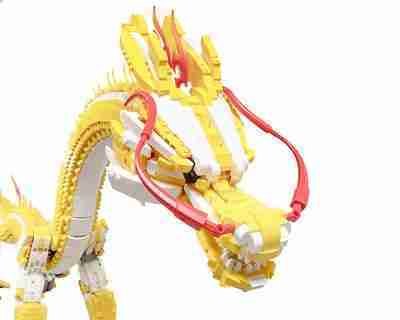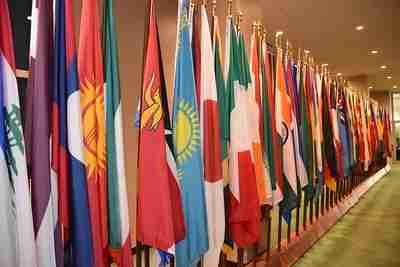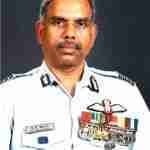The US decision to join the 2nd WW was simplified by the attack on Pearl Harbour. After end of the war in 1945, control of Berlin led to open confrontation between USA and the erstwhile Soviet Union. While the partition of Berlin resolved the issue temporarily, the world remained hostage to the shenanigans of the two super powers in what was termed as the Cold War era.
With the fragmentation of the USSR in 1989, the US emerged as the sole super power in a uni-polar world. If military inventory was the only parameter to decide the numero uno position, USA was and possibly is the numero uno power even in 2021. However, serious challenges to that position are now emerging from a China which has risen and which is aggressively pursuing its strategic agenda.
Will India act and make the best out of an otherwise turbulent situation and emerge stronger than ever or will India follow a policy of ‘wait and watch’ or worse still, preach ‘strategic restraint’ and ‘flexible response’?
It is ironic but true that the USA, despite having the most modern weapons and cutting edge technologies has never won a war fought by US troops after 2nd WW. In fact US has had to bite the dust always and every time. Be it more than 58,000 body bags from Vietnam or the fiercest terrorist strike anywhere in the world, the 9/11 disaster.
Why as the US never won a war post World War II? The answer is simple; US leadership has a knack of fighting fire with gasoline. It has committed this folly for past seven decades and more and continues to do so. It now faces the most important acid test of diplomacy. Unless the players withdraw on their own from the field, US has an unplanned T-20 cricket match sans ‘cricketing gear’ with pacers from Russia and China hurling the ball at hypersonic speeds. Three emerging situations need consideration, all of which having a high degree od probability of occurrence. These are:
- Will Russia attack Ukraine?
- Will China attack Taiwan?
- Will Israel attack Iran nuclear facility?
Russia-Ukraine Conflict
Russian troop concentration near the town of Voronezh is the largest Russian troop movement since 2014. Although the town is about 200 km south west from the Ukraine eastern border,it is close enough for mechanised forces to cover the distance within hours.
The Biden administration has not been at its best while dealing with Putin, addressing him personally with cuss words. Ukraine’s NATO ambitions notwithstanding, it is extremely unlikely that European nations will support a US led offensive against Russia. Should they do so, Putin will have little hesitation in using the ‘Gas weapon’ against Europe thus bringing in the chill of arctic winters.
While the Warsaw Pact is dead and buried, NATO is not exactly in the pink of health on the strategic front. NATO thus is unlikely to jump into the fray, if the US decides to take military action against Russia. The Russian motivation to attack Ukraine rests on two planks.
One, Russia is concerned about Ukraine’s status as Enhanced Opportunities Partner of NATO with impending NATO membership and two, Russia is off the view the two eastern provinces of Ukraine with Russian majority, Luhans and Donbas, belong to Russia. Russian decision to move huge mechanized columns across eastern borders of Ukraine for annexing two eastern provinces,
China-Taiwan Conflict
China has made its intention clear to take over Taiwan, by force if necessary. Recent moves by China, using its Navy (PLAN) and its Air Force (PLAAF), around Taiwan have been very aggressive.
A military assault on Taiwan is a red line for the US, so China is circumspect as of now, but should China take military action to occupy Taiwan, will the US go to war against China? Or will the US remain an onlooker, and in the process face humiliation in international arena.
Israeli Strike on Iranian Nuclear Facilities
For Israel, a nuclear Iran is an existential threat and they will do whatever is in their power to prevent that from becoming a reality. Iranian leaders have publicly threatened Israel with extinction, so for them, the Iranian threat is real and nor mere bluster. An Israeli strike on Iran’s nuclear facilities will not invite direct US military intervention, but will most certainly be condemned by Russia and China and perhaps by the European Union.
The role of the United Nations
The UNSC will certainly take up any of the above scenarios for discussion, but in all likelihood, one or the other P5 countries will veto the proposal. Potential triggers for a future conflict are real and no longer simply a topic for discussion in seminars.

The Chinese virus, SARS-CoV-2, which has led to the Covid 19 pandemic, has weakened the world, and in this scenario, a coordinated attack by China and Russia to seize their claim areas in their respective areas of interest, offers them the best chance of success with least possible probability/chances of physical military intervention by the US military.
Russia has, on more than one occasion, cautioned NATO not to cross the ‘Red Line’, which will become a necessity to stop the advancing mechanised columns of Russian military into Ukraine. Likewise China has steadfastly maintained that Taiwan is an internal matter of China.
India’s Position
Medians of every triangle intersect at a common point; a basic geometry theorem. India’s present position in the cauldron of effervescent international conundrum is that of the point of intersection of three medians inside the triangle, with the three ‘super’ powers China, Russia and USA occupying the apex points of the triangle. It is an amazing situation; unthinkable or barely thinkable a decade ago.
Will India act and make the best out of an otherwise turbulent situation and emerge stronger than ever or will India follow a policy of ‘wait and watch’ or worse still, preach ‘strategic restraint’ and ‘flexible response’? It is time for India to respond from position of strength, notwithstanding India’s abysmally poor technological status as compared to the three nations sitting at the apex of the triangle. It is the geographical location of India that has finally propelled us into prominence.
Russia is without warm water port; China cannot access Indian ocean unless friendly with India; America cannot move northwards of Diego Garcia unless friendly with India. VIIth fleet sailing into Arabian Sea in 1971 was, at best symbolism. US military equipped with superior weapons should know better than mess with an Indian soldier.
Will India use its diplomatic prowess to diffuse the tension, which if allowed to escalate will engulf the globe. Undoubtedly, Russia and China have moved much closer than ever. Animosity prevailing between China and Russia in 70s has given way to a mature strategic dialogue. Currently USA appears to be the lone ranger in the strategic paradigm shift of views and alliances, both cultural and military.
Amongst all nations in the world India enjoys a unique position. India has excellent diplomatic relations with Israel as well as Arab nations, indeed a success story of Indian diplomacy. US threats and/or JCPOA restrictions will not/cannot prevent the impending Israeli strike on Iranian nuclear facility. It is indo-Iran and Indo-Israel bonhomie that might be able to prevent the disaster from becoming a reality. Hopefully back channel negotiations between Iran and Israel through India must be taking place. Ongoing Vienna dialogue will accomplish nothing, if at all.
Successful back channel negotiations by Indian diplomats will achieve two things; firstly prevent Iran-Israel armed conflict and secondly, just might prevent Iran from going nuclear. A nuclear Iran is not only an ‘existential threat’ to Israel but also a ‘threat in being’ to India when viewed in the context of Pakistan. Neither of these will be accomplished by reimplementation of ‘modified’ JCPOA. Israel’s stark warning must be taken seriously by P5+1.
However the picture is not all that rosy. There are thorns of diplomatic squabble as well. For instance S-400 Indo-Russian deal can, rather will be a thorn between Indo-US relations. Non cancellation of deal might result in imposition of CAATSA by USA. Cancellation of deal will almost certainly result in huge backlash in Indo-Russian relations.
Wintering of Indo-Russian relations due to any reason will provide an opportunity to Pakistan (through China) to bring the issue of J&K for consideration of UNSC. Without an assured Russian veto, a resolution might be passed, which would impact India adversely. From the Indian prism, and assured Russian veto in support of India is of far more strategic importance that US imposed CAATSA. This will also prevent mischief from China.
Conclusion
Power politics has no clear guidelines or solutions. A US military intervention could invite a nuclear response by Russia, which will be catastrophic for the world as there would be no end game in sight. Would the three major powers be willing to go down that path? The question remains open.
For the US, it may like to review its policy of military intervention outside its homeland. As part of a heterogeneous group, the US should be sensitive to the concerns of its allies and take care not to alienate them. Clearly for the world, as also for India, diplomacy is the need of the hour. But compromising on fundamental issues will be nothing short of appeasement, and a reminder of what happened when Neville Chamberlain signed a peace treaty with Germany. That led to the World War II.
India is in a unique position, considering its geography, to play a major role in any emerging situation. Time and opportunity is ripe for India to emerge as a diplomatic super power.


